| Coach | NA |
| Venue | Stade Robert Diochon |
Quevilly Trivia
Quevilly predictions
Predictions for Quevilly: See upcoming and historic predictions for Quevilly below.
Disclaimer: Past performance does not guarantee future results. Betting involves risk; only wager what you can afford to lose. Always gamble responsibly.
Quevilly Opinions
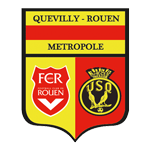 Who is the most legendary player in Quevilly history?
Who is the most legendary player in Quevilly history?
Ligue 2 standings
| Rank | Team | MP | W | D | L | GF | GA | GD | Pts |
|---|---|---|---|---|---|---|---|---|---|
| 1 |
 Auxerre
Auxerre
|
29 | 15 | 10 | 4 | 53 | 28 | 25 | 55 |
| 2 |
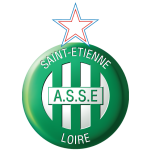 Saint Etienne
Saint Etienne
|
30 | 15 | 6 | 9 | 38 | 23 | 15 | 51 |
| 3 |
 Angers
Angers
|
29 | 15 | 5 | 9 | 42 | 32 | 10 | 50 |
| 4 |
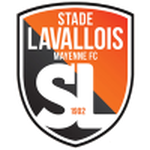 Laval
Laval
|
29 | 13 | 9 | 7 | 35 | 29 | 6 | 48 |
| 5 |
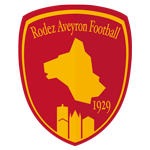 Rodez
Rodez
|
29 | 11 | 10 | 8 | 47 | 40 | 7 | 43 |
| 6 |
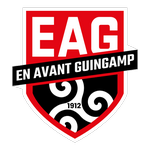 Guingamp
Guingamp
|
29 | 11 | 9 | 9 | 37 | 31 | 6 | 42 |
| 7 |
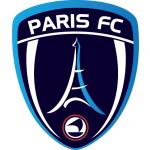 Paris FC
Paris FC
|
29 | 11 | 9 | 9 | 34 | 30 | 4 | 42 |
| 8 |
 Caen
Caen
|
29 | 12 | 6 | 11 | 39 | 37 | 2 | 42 |
| 9 |
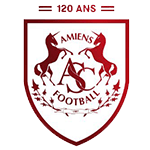 Amiens
Amiens
|
29 | 10 | 12 | 7 | 26 | 27 | -1 | 42 |
| 10 |
 Grenoble
Grenoble
|
29 | 10 | 10 | 9 | 36 | 33 | 3 | 40 |
| 11 |
 PAU
PAU
|
29 | 10 | 10 | 9 | 42 | 42 | 0 | 40 |
| 12 |
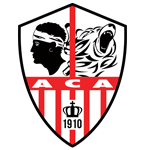 Ajaccio
Ajaccio
|
29 | 10 | 8 | 11 | 28 | 33 | -5 | 38 |
| 13 |
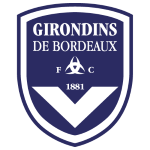 Bordeaux
Bordeaux
|
29 | 10 | 8 | 11 | 32 | 37 | -5 | 37 |
| 14 |
 Dunkerque
Dunkerque
|
29 | 10 | 7 | 12 | 29 | 40 | -11 | 37 |
| 15 |
 Estac Troyes
Estac Troyes
|
29 | 8 | 11 | 10 | 33 | 36 | -3 | 35 |
| 16 |
 Bastia
Bastia
|
29 | 9 | 7 | 13 | 29 | 37 | -8 | 33 |
| 17 |
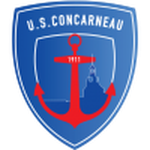 Concarneau
Concarneau
|
29 | 9 | 6 | 14 | 30 | 40 | -10 | 33 |
| 17 |
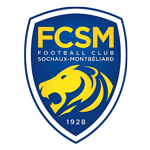 Sochaux
Sochaux
|
0 | 0 | 0 | 0 | 0 | 0 | 0 | 0 |
| 18 |
 Annecy
Annecy
|
29 | 7 | 9 | 13 | 33 | 40 | -7 | 30 |
| 19 |
 Quevilly
Quevilly
|
29 | 5 | 13 | 11 | 35 | 38 | -3 | 28 |
| 20 |
 Valenciennes
Valenciennes
|
30 | 2 | 11 | 17 | 17 | 42 | -25 | 17 |
About Quevilly
Quevilly-Rouen Métropole, commonly known as Quevilly, is a professional football club based in Le Petit-Quevilly, Normandy, France. The club was founded in 1902, making it one of the oldest football clubs in France. It is renowned for its rich history and its commitment to promoting local talent.
Quevilly's journey in French football has been marked by a series of ups and downs. Initially, the club played in the lower leagues of French football, but its consistent performances and determination led to its rise in the ranks. The club's first significant achievement came in 1927 when it reached the final of the Coupe de France, the premier knockout cup competition in French football. Although Quevilly lost the final, the club's performance was highly praised.
Over the years, Quevilly continued to make its mark in French football. The club reached the Coupe de France final again in 2010 and 2012, demonstrating its ability to compete with the best teams in the country. Despite these successes, the club has spent most of its history in the lower tiers of French football.
In 2015, Quevilly merged with US Rouen to form Quevilly-Rouen Métropole, a move aimed at strengthening the club's position in French football. The merger proved successful, as the club achieved promotion to Ligue 2, the second tier of French football, in 2017. However, they were relegated back to the Championnat National, the third tier, after just one season.
Quevilly is known for its strong emphasis on youth development. The club has a successful youth academy that has produced several players who have gone on to play at the highest level. The club's philosophy is to nurture local talent and provide them with opportunities to excel.
The club's home ground is the Stade Robert Diochon, a stadium with a capacity of over 12,000. The stadium is named after Robert Diochon, a former president of the club, and is known for its vibrant atmosphere during matches.
Throughout its history, Quevilly has shown a remarkable spirit of resilience and determination. Despite facing numerous challenges, the club has always bounced back and continued to compete with passion and pride. This spirit is reflected in its motto, "Toujours en avant", which means "Always forward".
Quevilly's story is a testament to the power of perseverance and the importance of community in football. The club may not have the financial resources of some of its rivals, but it has a rich history, a strong connection with its local community, and a commitment to developing local talent. These qualities have helped Quevilly carve out a unique place in French football and will continue to drive the club forward in the future.















